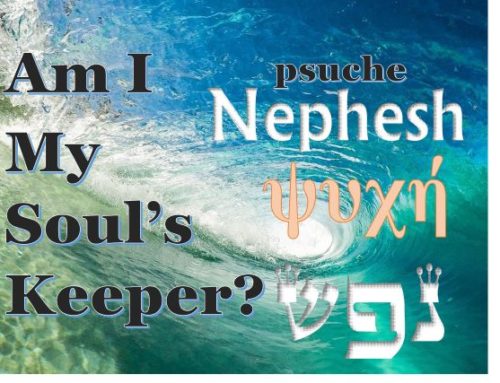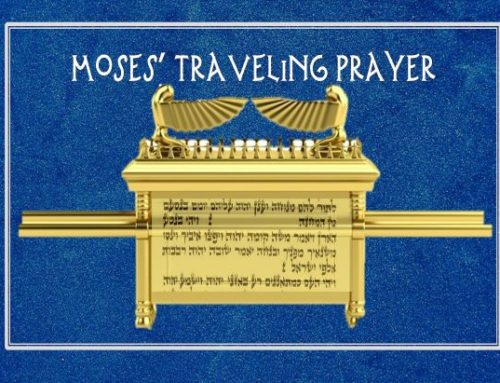Torah Portion Naso, Numbers 4.21 – 7.89, Haftarah, Judges 13:2-25
“And the priest shall write these curses in a book, and he shall blot them out with the bitter water:” Numbers 5.23 KJV
Our Torah portion, Naso, means to “lift up”. In it we read of a census, removal of lepers outside the camp, and the Priestly blessing. But the most perplexing is the ceremony of the bitter waters for the unfaithful wife. The ordinances and oaths against her, written on a parchment are blotted out into bitter waters. Paul the Apostle likely referenced this text when he said, “He blotted out the handwriting of ordinances that was against us.” Col. 2.14. Adam Clark’s commentary also argues this interpretation.
“Blotting out the hand-writing is probably an allusion to Numbers 5:23, where the curses written in the book, in the case of the woman suspected of adultery, are directed to be blotted out with the bitter waters.” A. Clark Commentary[1]
This ceremony of “bitter waters” stood in contradiction to scribal tradition, for not only were the ordinances and oaths of the accused dissolved, God’s Holy name written on the scroll was also blotted out.
This obscure ceremony was not simply meant to either expose or vindicate a suspected unfaithful wife. It seems that the true purpose was psychological deterrent. We have no written accounts that the ceremony was ever performed. For those unfamiliar with this text, this ceremony was initiated by a jealous husband who suspected his wife of adultery. If at the end of her declarations of innocence, he still did not believe her, he could bring her to the tabernacle and the priest to offer the prescribed sacrifices. The suspected adulteress was then charged with oaths and curses to which she would say Amen, Amen.
“‘And the priest shall bring her near, and set her before the Lord. The priest shall take holy water in an earthen vessel, and take some of the dust that is on the floor of the tabernacle and put it into the water. Then the priest shall stand the woman before the Lord, uncover the woman’s head, and put the offering for remembering in her hands, which is the grain offering of jealousy. And the priest shall have in his hand the bitter water that brings a curse. And the priest shall put her under oath, and say to the woman, “If no man has lain with you, and if you have not gone astray to uncleanness while under your husband’s authority, be free from this bitter water that brings a curse.” Numbers 5.16-19 NKJV
The effects of the bitter water would be harmless upon one who was innocent. In other words, an innocent wife could say Amen to these “ordinances” against her without fear because she was clean. Now the ceremony became dramatic. Her hair was loosened, the sacrifice was laid in her lap, and the priest, taking an earthen vessel filled with water, reached down to the dust of the Tabernacle, and sprinkled it into the water. He wrote the prescribed oaths and curses, including God’s name, onto the book. Then he dipped the parchment into the water, carefully “blotting out” or dissolving the accusations and God’s name from the parchment so that “no trace” remained on the scroll. (See Maimonides, Sotah 3.10)
Perhaps reading this account in the book of Numbers you are horrified by the prospect of the woman having to submit to such a trial. In a few moments I will explain a possible reason an occurrence of this is not recorded. But before we examine those, I want us to consider the possibility of our own spiritual infidelity to the Lord. Are there just, written curses and oaths against us? Might we be the hypothetical unfaithful wife who stand in need of “Great Peace” to have our sins blotted out?
I. The Blotting of God’s Name
“He blotted out the handwriting of ordinances that was against us and contrary to us, and He took it out of the way, nailing it to the cross.” Colossians 2.14 MEV
Paul has placed “us” in the shoes of the accused, our written curses and oaths also containing our ultimate punishment. In the book of Numbers, the priest took those written “ordinances” and rubbed them out of the book, dissolving them completely in the water.
Moses describes a woman whose written accusations were blotted from memory. Only a truly innocent woman would submit to this ceremony knowing that those ordinances could not stand against her. Maimonides, commenting on the Jewish law notes that both husband and the wife had to consent to this ceremony. A guilty woman had options. Without two witnesses she could not be put to death. The husband might divorce his wife and she would go out of the marriage without her Ketubah or promised marriage dowery. However, there was also the possibility that with confession the husband and wife might reconcile.
If, however, the wife insisted on her innocence, the husband could take her to the priest, but it would also mean the erasing of God’s name![2] Who would push such an issue to the point of not only humiliating his wife and family but erasing God’s name? Likely no one!
God’s Peace Between Them
The sages struggled to understand why God would allow His name to be blotted out and concluded that it was to make “great peace” between the husband and wife.
“For it had been taught: Great is peace, for even the Great Name written in holiness, the Holy Blessed One said to blot out in water so as to impose peace between husband and wife.” Vayikra Rabbah 9.9[3]
The Jewish commentary above is arguing that the Lord allowed His own name to be erased from the book as both a deterrent to the husband and a means to bring peace between husband and wife. I might also add that this must have been a great comfort to an innocent woman to know that she was not alone in the suffering. The Lord, in allowing His holy name to be erased, bore the shame and reproach alongside her. In the end, He would vindicate her before them all, and tradition said that if she had been barren, she would conceive.
II. The Blotting of Oath’s Against Us
“And the priest shall put her under oath, and say to the woman, “If no man has lain with you, and if you have not gone astray to uncleanness while under your husband’s authority, be free from this bitter water that brings a curse.” Num. 5.19 NKJV
Is there a way to be free from this bitter water? Put more bluntly, how can we escape our own punishment as an unfaithful bride? Tradition says that the priest spoke comforting to the woman, explaining in a language she could understand the sin she was accused of, and attempted to persuade her to confess her sin if guilty. Taking this oath of innocence could result in her death.
Many excuse their sins, protesting they are not sinners. But have we truly been faithful? The Bible says there is none righteous, all have fallen short. (Rom. 3.23) Yes, Paul rightly describes us as the unfaithful wife brought to the courts of heaven, truly guilty. So, how can we be free from these “ordinances” written against us? How can we acknowledge our sinful condition? There is Good News. The picture of our written sins and punishment, are miraculously flipped in Paul’s letter. Though we are guilty, letter by letter, our Great High Priest erased, “blotted out” the accusations, dissolved in the bitter waters. And what of the cup? Here is the beautiful part. The Lord, our High Priest, not only blots out our sin, as a faithful Husband He awaits our return. He removes the bitter cup from the lips of a repentant wife, and on the way to the cross He received it in full measure on our behalf!
“He went away and prayed, saying, “O My Father, if this cup cannot pass away from Me unless I drink it, Your will be done.” Mathew 26.42 NKJV
III. The Blotting of our transgressions
“I have blotted out, like a thick cloud, your transgressions, And like a cloud, your sins. Return to Me, for I have redeemed you.” Isaiah 44.22 NKJV
The shocking prescription for the jealous husband and the hypothetical unfaithful wife, has been described as a psychological prescription likely never employed. The mere thought of having God’s name erased caused the husband and wife to find a different solution. Even in the New Testament we see Joseph who suspects Mary of unfaithfulness in their betrothal. Legally, they were bound in marriage, but it never occurred to him to take this to the Priest. Instead, he intended to divorce her quietly, not putting her to shame, until the angel of the Lord came to confirm that this was a miraculous conception.
The primary objective was to elicit the truth and bring reconciliation. The Lord described Israel as an unfaithful wife. But rather than putting her away, He implored Her to return.
“’But you have played the harlot with many lovers; Yet return to Me,’ says the Lord.” Jer. 3.1 NKJV
But how can we take advantage of this offer of forgiveness? We begin by being honest with ourselves and with God by confessing our sin.
Conclusion
“If we confess our sins, He is faithful and just to forgive us our sins and to cleanse us from all unrighteousness.” I John 1.19 NKJV
Where are your sins? Erased! Oh yes, we can choose to deny our sin and defiantly drink the bitter cup of suffering with its ultimate consequence, but there is another option. If we confess our sins, He is faithful to forgive our sins. And what of our cup? It too must be dealt with. Thanks be to God, Yeshua, our Great High Priest who blots out the ordinances is also the husband to His wife. He has both blotted-out her sins, taking the cup from her hands, and the blank parchment has been nailed to the tree! May the Bride of Messiah be “arrayed in fine linen, clean and bright” today. (Rev. 19.8)
Shavua Tov from Zion
[1] Colossians 2 – Adam Clarke Commentary – Bible Commentaries. StudyLight.org. (n.d.). https://www.studylight.org/commentaries/eng/acc/colossians-2.html.
[2] Touger, E. (Trans.). (n.d.). Sotah – Chapter Three By Rabbi Moshe ben Maimon (“Maimonides”). Chabad.org. https://www.chabad.org/library/article_cdo/aid/960640/jewish/Sotah-Chapter-Three.htm#lt=both.
[3] Vayikra Rabbah 9. Sefaria. (n.d.). https://www.sefaria.org.il/Vayikra_Rabbah.9?lang=bi.




